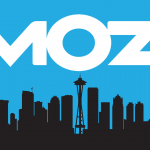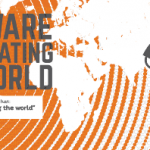How I Survived Nearly A Decade Of Underemployment
I couldn’t figure out what to wear, my bed had turned into a pile of outfits that had all been vetoed. Still, I managed to get into the office on time that morning. But if I’d known that it was going to be my last day of steady full-time employment for nearly a decade, I would have saved myself the trouble and marched in there in my pajamas.
It was a few months before the official start of the recession in October 2007 and I was laid off from a startup company that had just fallen apart. It was also the kickoff of what would become my eight-year battle for a stable, full-time job. Over the next several years, my life became a blur of resume submissions, job interviews, temp positions, filing for unemployment extensions, crying on my bedroom floor, and borrowing money from my mother.
I accepted four full-time jobs during that period, but none of them lasted longer than eight months. Most of those businesses fell apart, thanks to the recession and/or bad management.
It felt a little like being marooned at an airport with a standby ticket. I knew I would be able to board a flight eventually, but there was no way of knowing how soon it would come along.
During my prolonged underemployment, I employed a number of tools that helped set me up for future success as well as maintain my sanity.
Professional Resume Help
Even though my funds were limited, about a year into my job hunt, I shelled out about $ 120 to have a specialist revamp my resume. The last professional who helped me piece together this all-important sales document was my college career counselor 10 years before, so it was time for a serious upgrade.
I tossed aside dated space wasters, like including my home address and an “objective” at the top of the resume. In their places, I inserted a summary of my skills:
Senior editor with experience in
writing, editing, and managing print and digital content.
developing content that engages readers and increases site traffic.
a broad array of subjects including food, health, fitness, and relationships.
There was also no need to include the exact months that I had been employed at my previous jobs—only putting the year was good enough.
But learning the importance of integrating statistics and job achievements into my resume was perhaps the most helpful tip I received. I swapped out run-of-the-mill bullet points, like:
- Wrote, edited and researched feature articles
For…
- Created health and wellness editorial content for XYZ.com, which increased site traffic by 35%
The former example could apply to anyone, but the latter offers a more targeted look at what I achieved at my previous job.
Volunteering To Help Refocus
On the advice of a friend I began volunteering at a local homeless shelter. Not only did it get me out of the house and away from the job-hunting grind, but it also gave me an opportunity to stop focusing on my bad luck and work toward helping others who were living through much worse circumstances.
Writing To Offset Stress
Studies have shown that losing a job can lead to high levels of stress and poor health, but journaling can help offset those negative side effects. So I found myself spending a lot of time writing about the ups and downs of this seemingly never-ending period of my life. That journaling also inspired me to pursue freelance writing opportunities, which brought in a decent amount of pocket money.
Business Branding
My resume was not the only promotional tool that employers would be taking into consideration, so I invested some cash into a new domain name, a website redesign, and new business cards. I left cards with every single person I had a face-to-face interview with, and each one of them made a comment about how beautiful and professional the cards were. The cards may not have always led to a job offer, but at least they made it easier for potential employers to remember me.
The last interviewer who was impressed by my business cards was the person who offered me my current job. In 2015, I applied for a position from an online job board, and I’ve been with the company for almost two years—officially ending my laid-off-in-less-than-a-year streak. My eight-year job-hunting roller coaster turned out to be an elaborate exercise in patience, preparation, humility, financial resourcefulness, and hope. All bad things must come to an end, and when the tide finally came in, I was ready.
Dana Robinson is a Los Angeles-based freelance writer. Follow her @danarobinsays or get in touch at Dana-Robinson.com.
(71)














